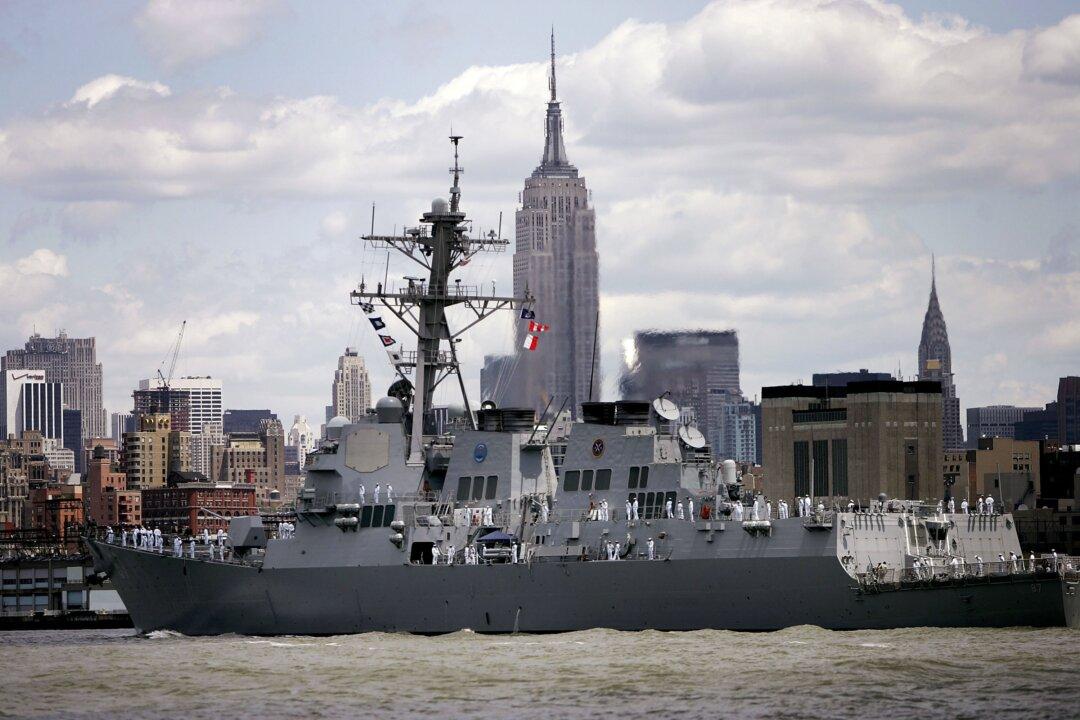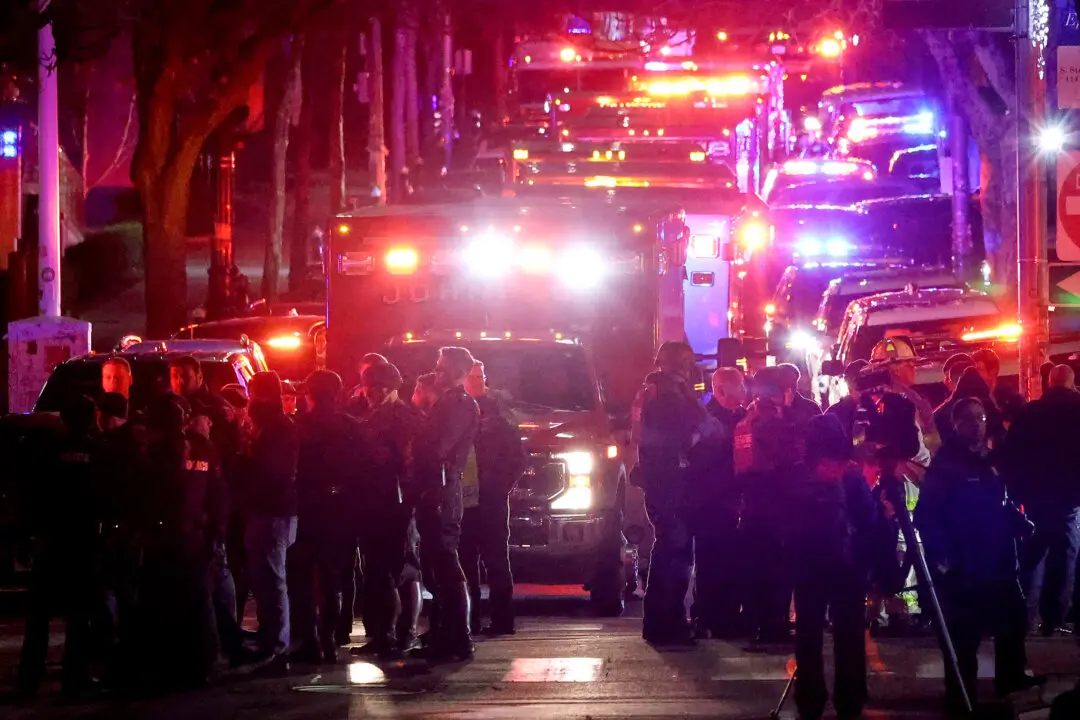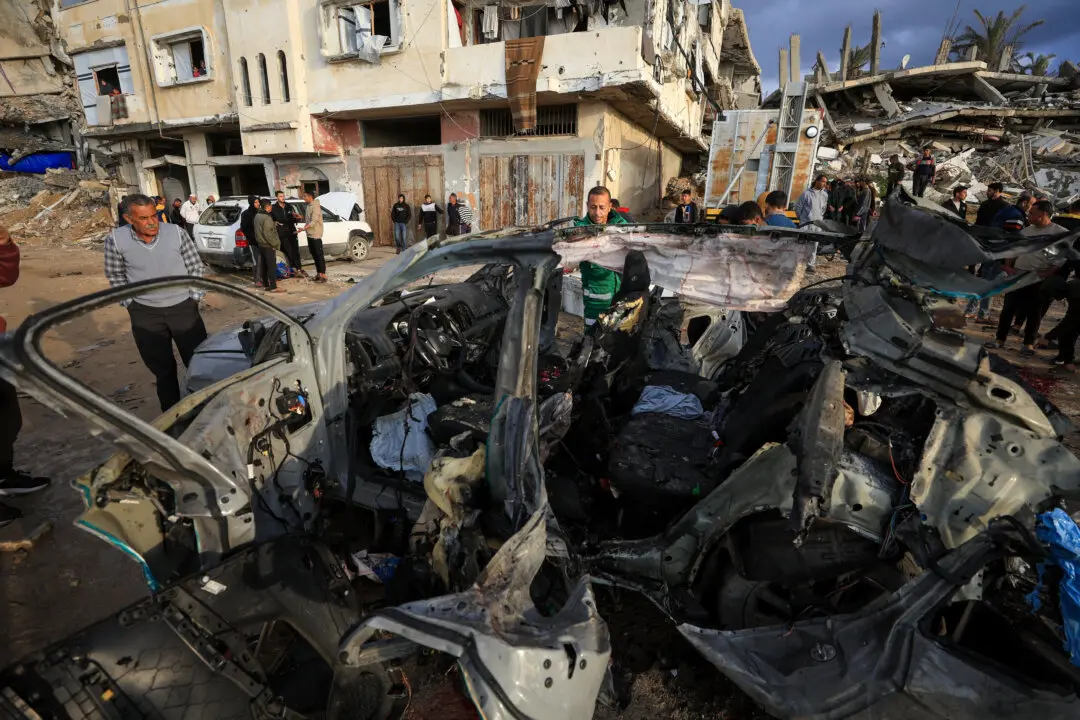The U.S. military now assesses that one or more missiles that were launched from Yemen and traveled in the same general direction as a U.S. warship in the neighboring Gulf of Aden on Monday morning were not targeting the U.S. Navy vessel.
The U.S. Central Command (CENTCOM), the command in charge of U.S. military operations in the Middle East, initially reported a pair of ballistic missiles launched from an area of Yemen controlled by Houthi rebel forces, and that the missiles landed approximately 10 nautical miles (about 11.5 miles) from the Arleigh-Burke class guided-missile destroyer USS Mason at around 1:40 a.m. local time on Monday.





